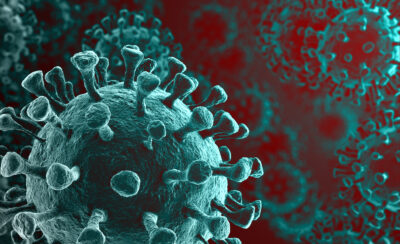If you have a fever, cough or shortness of breath. Please stay home and contact our office at (888) 377-4483.

What patients should know and do regarding COVID-19 while trying to conceive
We have had many patients asking about COVID-19 (coronavirus disease 2019). While healthcare leaders are still learning about this new variation of the coronavirus family, we have experience from the past to help guide us. In addition, new studies are coming out every day to help give us better understanding of the prevention and treatment options with COVID-19.
Most importantly, we should all try to avoid getting the virus. This means following standard hand washing, workspace disinfection, and food preparation guidelines with increased rigor. It also means cleaning all surfaces frequently with appropriate anti-microbial solutions.
Some examples:
- Wash hands after traveling to and from an event or work.
- Avoid touching others and avoid touching your face and mouth.
- Prepare your own food at home with clean utensils.
- Maintain social distance from others who are coughing, sneezing or who appear ill.
- Avoid touching door handles or common devices like a shared phone.
Precautions while in treatment or pregnant
In regards to work and other social gatherings, it is perfectly reasonable to work from home when you are able so you can get through your cycle with the lowest possible chances of contracting the virus. We are happy to explain the need to work from home to your employer if necessary. All optional social events involving large crowds should be avoided.
If you contract COVID-19 while in cycle (IUI, IVF or FET), your cycle will be postponed.
If you contract COVID-19 while pregnant, you will need to take Tylenol (acetaminophen) to keep your fever below 100.5 degrees Fahrenheit. Pregnant women can take anti-viral medication just like people who are not pregnant. One early study of 9 cases suggests that the virus is not transmitted through the placenta to the fetus (Lancet 2020.) Your local hospital will have resources and up to the minute treatment plans for you.
When a patient is in stimulation for an insemination cycle or IVF cycle, it is of utmost importance to stay healthy. If you have a fever, cough or other symptoms of an acute respiratory viral infection (shortness of breath, muscle aches, fatigue, sore throat) or have been in contact with someone with coronavirus, you will need to see your primary care provider as soon as possible to be tested. If you are suspected to have contracted COVID-19 you will be placed on home quarantine until the lab test result is back and is negative.
This means that you will not be allowed to go forward with insemination, egg retrieval or embryo transfer. Your cycle can be postponed until a later time when you are healthy. Frozen embryos will not suffer any harm in this situation as they are not thawed until a few hours before your transfer.
While postponing a cycle can be very disappointing, we have made these recommendations for your safety and those around you. Across the country, technology companies, business leaders, academic institutions and healthcare organizations have taken measures to support containment, one of the most proven strategies to fight the global spread of COVID-19.
As this is a rapidly evolving situation, we encourage you to monitor sites such as the Centers for Disease Control and Prevention, the World Health Organization and local health departments for the most up to date information regarding COVID 19 and pregnancy.
Related Reading:
- Updated COVID-19 Policies & Statement From RSC Physicians
- Should I Get the Coronavirus Vaccine if I Am Pregnant?
- COVID-19 Vaccine Recommendations
- Thankfulness for Our Fertility Patients in the Time of COVID-19
- ASRM's New COVID-19 Pregnancy Guidelines
- Exciting News: We’re Restarting Fertility Cycles!
- CapexMD’s Patient Financing Assistance Program During COVID-19
- Quiet Reflection: Missing Our Fertility Patients During COVID-19
- A Safe Pregnancy During COVID-19 Is Possible
- Caring for Patients During the Coronavirus Pandemic
- Hope During COVID-19
- What You Should Know About COVID-19 and Fertility Treatment

Breaking Barriers, Building Families
Since 1983, we have pioneered fertility treatment for every kind of family. We want to help you achieve your dream of having a baby.
Request appointment